|
Week 5 was ambitious, like I said. Tone. Tonal shift. Diction. Imagery. Syntax. AND Rhetorical Appeals. The kids, however, followed along like champs. In particular, they were ALL about the Diction Dress-up paper dolls. It was one of those risky lessons that outshone my expectations. It’s a highly recommend if you want to talk about tone and diction. :) I will warn you, though, that cutting out the doll was a much more daunting task than I thought. Ha ha. week 6Now we are on the downswing of our Critical Reading unit. (About time… we are on Week 6 after all). Therefore, I am going to spend the week walking kids through how these different concepts tie in to AP: Annotation and SOAPSTone analysis. Now that I think they have some of the core concepts down, we are ready to start analyzing text for multiple choice. Part of Teaching Sincerely is being adaptable so that the kids get what they need. Nowhere is this more important than the AP classroom (...in my biased opinion). Kids need feedback, and they need it often, but anyone with more than one section of AP knows how impossible that feels. This summer, I posted a blog series about how I keep feedback manageable. (It starts here). One of the strategies that I shared - collaborative writing - is coming into play this week. Students will do collaborative annotation and a collaborative SOAPSTone. By using the methodology I share in this free resource, I am able to make sure that all kids are practicing the skill with fidelity while simultaneously limiting the number of submissions. This, in turn, means I can give them lots of feedback before their test next week. Collaborative writing is a big go-to in my room. Try it out and see how it changes your practice! Lesson Plans
0 Comments
I’ve realized more and more how powerful vulnerability is as a teacher - with my students, with my colleagues. With you. We all know it isn’t shiny and glossy all the time, and to present myself in a way that implies that is unfair. So here I am - sending off one of my low moments to the world, packaging up my vulnerability so it might be medicinal instead of toxic. Because, last week, on Thursday, I found myself struggling more than usual with my depression. As my students wrote about rhetorical strategies and The House on Mango Street. I wrote what follows. 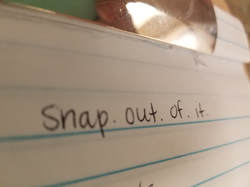 Snap, Out. Of. It.
I optimistcally scrawled it across the top of my To Do list this morning. Like a warning. Like telling myself would bring me back. Like positive self talk might work this time. Affirmations. Positive thinking. Growth mindset. I can hear myself cycling through the mantra over and over again, trying to use the same tools I use to encourage my students. Obviously, it isn't working. And it's probably because these things are all good and all important, but they ignore one glaring question: What about when it’s chemical? Because words don't to much against poison being pumped from your brain, especially when it feels as if it’s already rewired your thinking permanently, even immobilized you. The reality of depression is ugly, and I hate the say it, but those positive words just don’t do much when you have to keep swallowing the sobs in your throat. And they don’t do much when you can’t steady your hands long enough to write on the board. And they don't do much when everything feels artificial and pointless. But that’s what I’m up against today. As a teacher fighting through depression and anxiety, sometimes I feel like an imposter. Like I’ve been replaced by this uglier version of myself. On my ugly days, I struggle with the guilt. The physical pain. The frustration. The fatigue. I just struggle. Completely. And I think the worst part is that I have no idea when it’ll let up. Every second is a string of the same questions: How many days will I wake up with the weight of an iron vest pinning me to my bed? How many days will I have to keep reminding myself to put on this fake smile? How many days can I lie, throwing out a “Fine” when my students kindly ask how my day is going? Because without some end in sight, I worry about my students. I can maybe fake it for a day, but pretty soon it starts to interfere with my lessons. I find myself swapping active, engaging lessons for those things they can do independently while I let myself drown a bit. It quickly becomes a disservice. Then, I fight with myself about staying home in the hopes a day of rest might resurrect me - but that, again, is just another disservice. And in my heart, I know it doesn't work that way anyhow. So the guilt thickens the poison. I try to fortify myself with a half hearted smile and pray they won’t notice because it’s terrifying if - even for a moment - they realize it isn’t Cwik standing at the front of the class but this evil twin. And I hope - no, plead - that tomorrow will be better and the fog will pass. And I evade one horrible, taunting truth. That they deserve better. Guys. It’s Week 5! That realization fills me with both panic and relief. Mostly panic. We haven’t even started any test prep. Nonetheless, it was another good week. The kids managed to write essays without me when I was away at training, and we finally started jumping in to BIG ideas and the rhetorical triangle. Next up, more critical reading! Wee! Week 5We are working through more strategies to look for as they read challenging texts this week. Tone, imagery and illustration, syntax, and rhetorical appeals. It’s a lot to tackle in a week, but they are ready to rock and roll (Thanks to their AWESOME Honors teacher!). I’ve got my axes to grind, but one thing I love about my school is that I am not tied to American Lit in AP. I am not forced to tie rhetorical reading in with fiction. I am not forced to include any full length texts at all. Now, I do. We read Gatsby in a thematic unit just for the sheer beauty of it, but no one is standing on my shoulders telling me I have to get to anything. That’s one of the reasons, I am able to stay skills focused. This week, we are reading passages from Mary Roach’s Stiff, “Salvation” by Langston Hughes, Queen Elizabeth’s speech at Tilbury, and Toni Morrison’s endorsement letter to Obama. Because I have the freedom, I can choose texts by what skill they mentor or demonstrate. That’s incredibly rewarding. Unfortunately, I know that isn’t the case for all my readers. Many are tied to American Literature (Gatsby, The Crucible, etc) while others are caged in by “lock step” curriculum. Some unfortunate souls get strapped with both. For me, Teaching Sincerely means you adapt to find your own passion in the “have to’s”. I’ve spent most of my career finding just how far I can bend the rules to suit what my kids need, and I am passionate about helping others do the same. If you are feeling locked in, reach out. I am ready with ALL the ways around those shackles. Lesson plansHave a great week, AP world! Sincerely cwikSo this last week was our first jumping into our critical reading unit. I have to say I was excited to hit the ground with some of our skills lessons. Overall, I made very few changes to the plan I posted. I just switched my overview of Standards Based Grading to Friday. (It was a pep rally Friday - so discussing the Rhetorical Triangle didn't seem all that enticing). We started our My Dream for America speeches. Already the kids are off to great ideas, using MLK's iconic speech as a model. It's proving to be a great assignment for the beginning of the year - a chance to see what they are most passionate about. As they picked topics, I told them to think about what they would "march on Washington" for, and they aren't disappointing me with their fiery beginnings. Week 4This week, we are continuing on with our critical reading strategies, but first - I have to be gone for two days. (Of course). I figured they could always practice more expository writing, so I outlined a compare/contrast writing assignment using Washington and McCain's farewell messages. To fit in with our prior strategy - the Rhetorical Triangle - I am having them compare and contrast the speakers, the audience, and the subject to ultimately distinguish between their purposes. (It's actually looking to be a happy inconvenience that I have a training). For me, teaching always seems to get interrupted. Part of Teaching Sincerely is finding a way to maintain your focus and intent when things like... MANDATORY TRAININGS... get in the way. When it comes to sub plans, I go back to those BIG Rocks - those things I care most about for my kids. As much as it kills me to be away, I have a few "go to" filler activities that still move us toward my big goals. Hence, the expository writing practice. As long as my kids are going writing that is intentional and focused, I am down. As I mentioned in a past post, my BIGgest rock is that students find a voice of their own - so this lesson, which is analyzing the voice of others, is a step in the right direction. Lesson PlansUPDATE: Here is a link to the document for the Expository Compare/Contrast essay. Sorry it's a PDF. My original was corrupted. (My life this week...)
You know, I always think that I am going to get used to the exhaustion that comes with school, but it never happens. And this week was a tough one. In regards to last week’s post, I made minimal changes in the execution of the material. I haven’t started reading conferences - mostly because it kills me to pull them away from reading for a chat. I’m still working out how I want that to look. Otherwise, we had a good week of revision. I was able to speak to multiple students as they worked on their diagnostic definition essay, and I LOVED it. We were able to have such incredibly sophisticated conversations about writing that I can’t wait to do it every day. Week 3It’s the first full week, so I am preparing myself for new levels of tired. (But I’ll probably still be surprised, as I said). This week, I am excited to get started with our Critical Reading unit. The plan is to start by talking about what responsible citizenship and reading looks like and what value it holds by having a discussion using a Question 1-like prompt about Fake News. Then, we’ll look at the mentor text for their next draft (“I Have a Dream”) before we learn about the rhetorical triangle. In other words, it’s a week to answer a lot of WHYs: Why we need to read. Why people write. Why purpose or intention matters. This weekend, I spent hours and hours pouring over my plans to start using Standards Based Grading. I wrote up my own hybrid AP-ELA standards, determined proficiency descriptors, and made student handouts. Teaching Sincerely takes a lot of risk - just like it takes flexibility. My school does not use Standard Based Grading. Rather, they use the traditional method: throw all the points in a pot and average it out. In my own professional learning this summer, my interest in SBG was reignited. I had gone to sessions on it before - at NCTE, I think - but the practicality of it seemed too daunting. Worrying about getting student buy-in, parent understanding, and admin approval had stopped me. Not anymore. I am ready to grade students in a way that rewards growth and does not punish the struggles of a rigorous class. And I am ready for their grade to reflect their work. Making decisions like this - to go against the flow and do my own thing - always come with a lot of anxiety. I’ve talked to colleagues, all of my students, my instruction coach, and still, I am nervous, but making purposeful changes like this are how I Teach Sincerely and adapt my own aspirations to the position I’m in. If I’m completely honest, risks like this are what keep me invested and committed. I’ll keep you posted on this exciting new venture! Lesson PlansLast week, I began compiling a year’s worth of AP lessons. (See Week 1 here!). After an awesome response from my PLN, I am so excited to send out another week! Last week - our first week! - was pretty successful. I have enjoyed sitting down with kids to talk about their learning and futures in the student interviews. It’s definitely something I want to continue from here on out. I will admit, however, that I didn’t do the academic resumes. Technology hated me, so I dropped it. We also couldn’t do our state testing. (Ugh). Nonetheless, I definitely call Week 1 a win, so... on to Week 2! Week 2This week - another 4 day week! - is about revising their diagnostic essay from last week. Unfortunately, I have to complete their state testing still - because heaven forbid we do it on our own schedule - so we are knocking that out on Tuesday. The rest of the week, then, we can go over different revision strategies (emulation, score comparison, and read aloud… if we have time). Students will mark up their original diagnostic and hand that version in, along with the final, revised version, on Monday. This will allow me to get a diagnostic on their revision practices as well. A huge part of Teaching Sincerely is that you adapt to the kids or your own BIG ROCKS. As I talked with kids, they all pointed out that they needed models or examples to do their best work. Therefore, instead of jumping into critical reading, I postponed that for a week to allow me to teach them how to do thoughtful revisions. Flexibility is the key to good teaching, and that’s something the kids have been affirming in my interviews. Too many times, things like common curriculum, or lock-step teaching, keeps us pushing forward to stay on the timeline, even when our kids are not ready. Teaching Sincerely means standing up for the changes you know are needed for the sake of kids. For me, this means approaching my team frequently with evidence to defend whatever change I want to see. Advocacy is a lot easier with the proof to back it up! Lesson PlansAnd there you have it! I hope the Scribd format works as well as linking. (It's linked to the "Lesson Plans" title just in case). Here's to another great week with kids! |
Archives
February 2024
AuthorSteph Cwikla has been a teacher since 2012, focusing on ELA curriculum. Now, she also works as an instructional coach, helping other teachers improve engagement and instruction. |
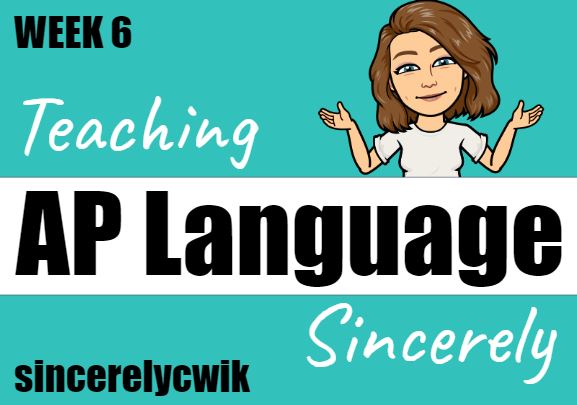

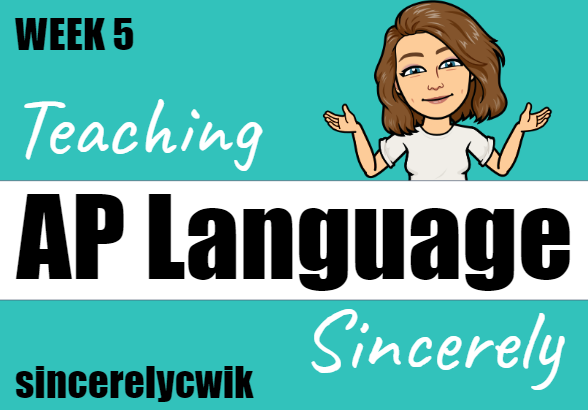

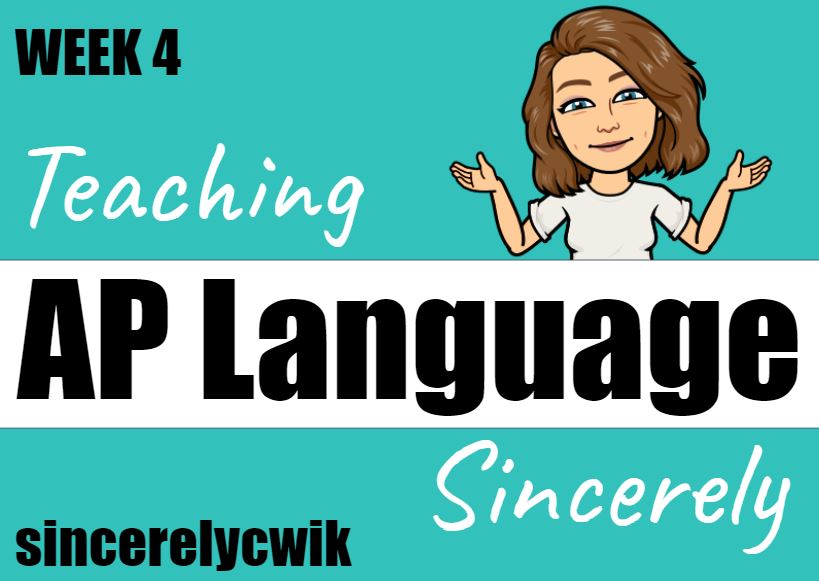

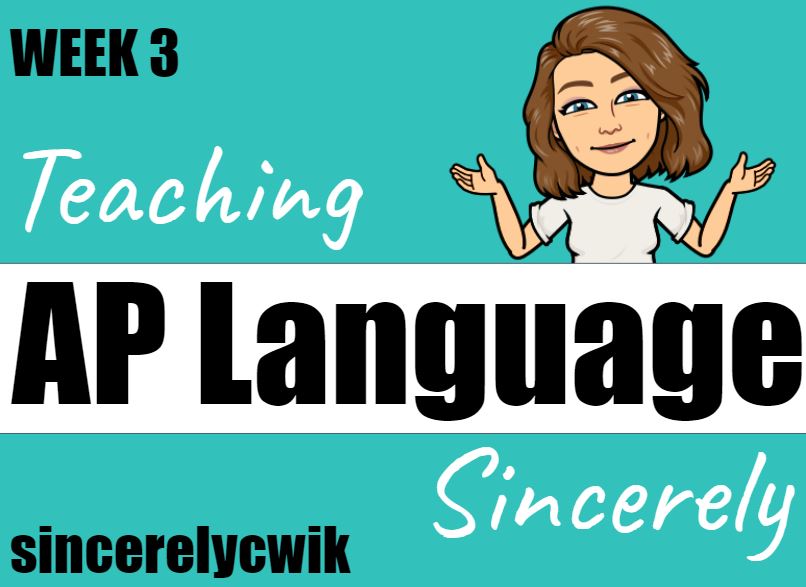

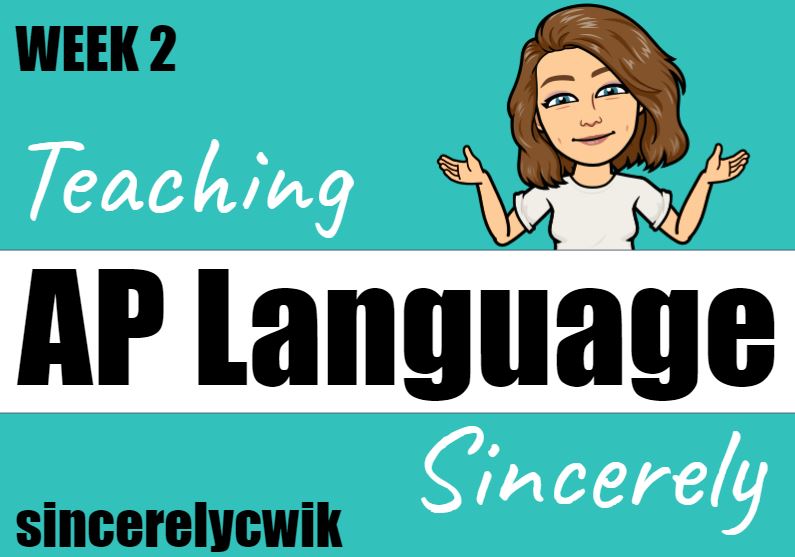

 RSS Feed
RSS Feed